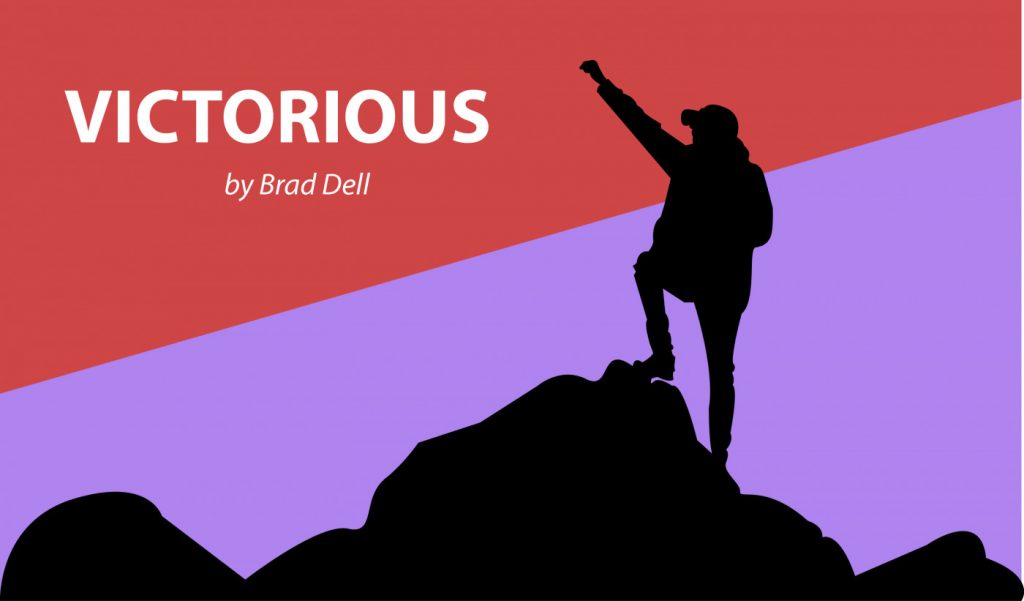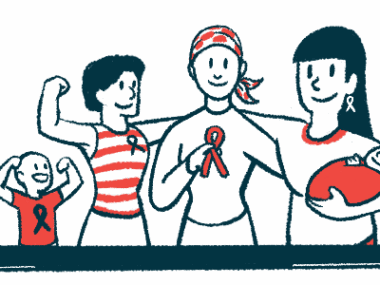Addiction Is a Real Risk
Written by |

(Courtesy of Kathleen Sheffer)
“I can give something to relax you,” the doctor says. I stiffly nod, neck taut and arm outstretched for an arterial blood gas test.
The doctor holds up a syringe — a drop of shiny liquid is squished between needle and plunger. It’s the purest looking substance I’ve ever seen. The doctor flicks the syringe, tongue slightly poking out, and bends over my IV. A spark streaks through my veins.
My heart blossoms, my brain fizzles like a sparkler, fairies lightly kiss my skin and tickle my spine. The corners of my mouth raise while my eyelids droop to half-staff. I hum with pleasure. The feeling is sweeter than honeyed yogurt, more thrilling than plummets in a roller coaster, more euphoric than a symphonic climax.
“I feel like I’m in heaven,” I say and chuckle dumbly. “I like this. A lot.”
The doctor smiles knowingly and winks. “Don’t let anyone hear you saying that.”
It was my first experience with fentanyl, a man-made opioid up to 50 times more potent than heroin and up to 100 times more potent than morphine. Over the course of a year, shredded by septic shock, a legion of infections and invasive procedures, I became a brief, yet intimate, lover of fentanyl and her friends: oxycodone, tramadol, clonazepam, lorazepam. At the end of the year, my chest was broken open to receive the lungs of a stranger, then sewn back together like a damaged doll. Fentanyl was then dripped into my spine via epidural administration every 30 minutes for several days.
In those days after the transplant, I soared. I basked in fentanyl’s ethereal grace and thought, “So this is what living feels like, huh?” Maybe — for a god. It was artificial, though. I was just a drugged man who hadn’t yet been struck by the wrath of withdrawal. Ambrosia is for the divine; mere mortals who lick it meet an inevitable downfall. We aren’t programmed to feel that good.
Fentanyl lifted me, benzodiazepines grounded me, oxycodone sank me. I spent nights wide awake because I couldn’t sleep without clonazepam after using it every night for several weeks. I spent nights awake because I couldn’t stop gazing at a bottle of tramadol, my brain begging my arm to reach for an extra dose to fill the empty caverns of my heart. I spent nights awake repeatedly jamming my thumb down on an epidural release button — click, click, click, click — hoping for an extra fentanyl dose before its timed availability. I spent a night sobbing because I’d looked at my girlfriend of five years and felt no love — only a pit where those emotions once rushed. My new love was fentanyl and she took twisted satisfaction in stringing me along, in teasing my mind before brutally stripping it of all things good.
My supply of fentanyl was cut off once I was released from the hospital, two weeks after my transplant. On one of the first nights in a frigid apartment nearby, I dragged my numb legs across the linoleum kitchen floor, moaning and digging my hand around in a medicine basket, checking labels against stray moonlight beams peeking through curtains. I’m not sure what I sought. The tramadol pills I’d been given by the doctors weren’t powerful enough to stave off cravings for the mother of all painkillers.
I stared in the bathroom mirror and saw deep bags beneath sinkhole eyes, a mouth’s laugh crinkles stolen — as if the drugs sucked out not only present laughter but also the past’s as well. A gaunt ghost of my former self. I returned to bed and swaddled myself in polyester blankets, crying out for liquid fentanyl nourishment, as a baby does for milk.
I had spent several months fighting relentlessly for my life, fearing donor lungs wouldn’t become available in time to save me. Now I had the transplant. But without the double-edged elixir flowing through me, I questioned if life was worth pursuing without what I’d once felt; what I’d felt that eventually deserted me without the ability to feel. I was stripped to my skeleton because of the soul-sucking vortex that once flushed through my veins, through my spine, through my heart.
I thought of all the articles I’d read about the opioid abuse epidemic among middle-class white males like me. Life-killers disguised as painkillers. And I thought of the lack of addiction warning by medical professionals throughout my life. CFers take an armada of medications, so it’s easy for doctors to fling pharmacy scripts at us without worrying as much about our reactions as they would for a typical patient with less medication experience.
I’ve heard of many others with CF forming the same dependencies as I did when given intense treatment in hospitals. I’ve also had too many of my CF friends guzzle alcohol and pop painkillers or benzos to drown trauma. I’ve written columns about mental illness plaguing the CF community. Addiction is a real result of mental illness. It’s time for the CF community to address addiction.
***
Note: Cystic Fibrosis News Today is strictly a news and information website about the disease. It does not provide medical advice, diagnosis, or treatment. This content is not intended to be a substitute for professional medical advice, diagnosis, or treatment. Always seek the advice of your physician or other qualified health provider with any questions you may have regarding a medical condition. Never disregard professional medical advice or delay in seeking it because of something you have read on this website. The opinions expressed in this column are not those of Cystic Fibrosis News Today or its parent company, Bionews Services, and are intended to spark discussion about issues pertaining to cystic fibrosis.








Keao
I saw a link my friend Julie posted and followed it here. Thank you for sharing your experience, it's a powerful look at something I've never given too much thought to.
Tim
For people with CF, considering that death is most often attributed to Lung complications like respiratory failure or complications associated with, and...
Similarly, death due to opiate based overdose is always attributed to respiratory depression or complications from. It would be logical to assume that CF patients stand a much higher risk of Opiate based overdose then normally. Doctors who do it and without any supervision of the patient or monitoring are stupid!!